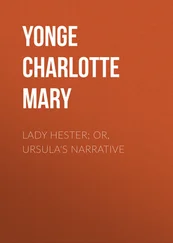Charlotte Yonge - Cameos from English History, from Rollo to Edward II
Здесь есть возможность читать онлайн «Charlotte Yonge - Cameos from English History, from Rollo to Edward II» — ознакомительный отрывок электронной книги совершенно бесплатно, а после прочтения отрывка купить полную версию. В некоторых случаях можно слушать аудио, скачать через торрент в формате fb2 и присутствует краткое содержание. Жанр: foreign_humor, Юмористические книги, literature_19, foreign_antique, на английском языке. Описание произведения, (предисловие) а так же отзывы посетителей доступны на портале библиотеки ЛибКат.
- Название:Cameos from English History, from Rollo to Edward II
- Автор:
- Жанр:
- Год:неизвестен
- ISBN:нет данных
- Рейтинг книги:4 / 5. Голосов: 1
-
Избранное:Добавить в избранное
- Отзывы:
-
Ваша оценка:
- 80
- 1
- 2
- 3
- 4
- 5
Cameos from English History, from Rollo to Edward II: краткое содержание, описание и аннотация
Предлагаем к чтению аннотацию, описание, краткое содержание или предисловие (зависит от того, что написал сам автор книги «Cameos from English History, from Rollo to Edward II»). Если вы не нашли необходимую информацию о книге — напишите в комментариях, мы постараемся отыскать её.
Cameos from English History, from Rollo to Edward II — читать онлайн ознакомительный отрывок
Ниже представлен текст книги, разбитый по страницам. Система сохранения места последней прочитанной страницы, позволяет с удобством читать онлайн бесплатно книгу «Cameos from English History, from Rollo to Edward II», без необходимости каждый раз заново искать на чём Вы остановились. Поставьте закладку, и сможете в любой момент перейти на страницу, на которой закончили чтение.
Интервал:
Закладка:
As soon as the news arrived at the Camp of Refuge that the warlike Thorold had been appointed to Peterborough, Hereward and his hand hastened to the Abbey, and, probably with the consent of the Saxon monks, carried off all the treasures into the midst of the fens. Thorold, with one hundred and sixty men-at-arms, soon made his appearance, was installed as Abbot, and quickly made friends with his Norman neighbor, Ivo Taillebois.
They agreed to make an expedition against the robber Saxons, and united their forces, but Thorold appears to have been not quite as willing to face Hereward as to threaten his monks, and let Ivo advance into the midst of an extensive wood of alders, while he remained in the rear with some other Normans of distinction. Ivo sought through the whole wood without meeting a Saxon, and returning to the spot where he had left the Abbot, found no one there, for Hereward had quitted the wood on the opposite side, made a circuit, and falling suddenly on Thorold and his party, carried them off to the fens, and kept them there till they had paid a heavy ransom.
In 1072, the fifth year of the Camp of Refuge, it had assumed so formidable an aspect, that William thought it necessary to take vigorous measures against it, more especially as there had been lately a commencement of correspondence with the Danes. The difficulty was to reach it, for the treacherous ground of the fens afforded no firm footing for an army; there was not water enough for boats, no station for archers, no space for a charge of the ponderous knights, amongst the reedy pools. William decided on constructing a causeway, and employed workmen to cut trenches to drain off the water, and raise the bank of stones and turf, under the superintendence of Ivo Taillebois. However, Hereward was on the alert, harassing them perpetually, breaking on them sometimes on one side, sometimes on the other, in such strange, unexpected ways, that at last the viscount came to the conclusion that he must have magic arts to aid him, and persuaded the king to let him send for a witch to work against him by counter spells. Accordingly, she was installed in a wooden tower raised at the end of the part of the causeway which was completed, and the workmen were beginning to advance boldly under her protection, when suddenly smoke and flame came driving upon them. Hereward had set fire to the dry reeds, and, spreading quickly, the flame cut off their retreat, and the unhappy woman perished, with many of the Normans.
Again and again were the Norman attacks disconcerted, and all that they could attempt was a blockade, which lasted many months, and might probably have been sustained many more by the hardy warriors, if some of the monks of Ely, growing weary of the privations they endured, had not gone in secret to the king, and offered to show him a way across the Marches, on condition that the wealth of the Abbey was secured.
Accordingly, a band of Normans crossed the fens, took the Saxons by surprise, killed a thousand men, and forced the camp. Hereward and his five comrades still fought on, crossed bogs where the enemy did not dare to follow them, and at length escaped into the low lands of Lincoln, where they met with some Saxon fishermen, who were in the habit of supplying a Norman station of soldiers. These Saxons willingly received the warriors into their boats, and hid them under heaps of straw, while they carried their fish as usual to the Normans. While the Normans were in full security, Hereward and his men suddenly attacked them, killed some, put the rest to flight, and seized their horses.
Collecting others of his scattered followers, Hereward kept up his warfare from his own house at Bourn, continually harassing the Normans, until at length he took prisoner his old enemy, Ivo Taillebois, and, as the price of his liberty, required him to make his peace with the Conqueror. This was good news to William, who highly esteemed his valor and constancy, and could accuse him of no breach of faith, since he had made no engagements to him. Hereward was therefore received as a subject of King William, retained his own estate, and died there at a good old age, respected by both Saxons and Normans.
There is, indeed, an old Norman-French poem, that declares it was for the love of a noble Saxon lady, named Alftrude, that Hereward ceased to struggle with the victors. According to this story, Alftrude, an heiress of great wealth, was so charmed by the report of Hereward’s fame, that she offered him her hand, and persuaded him to make peace with William. It is further said, that one afternoon, as he lay asleep under a tree, a band of armed men, among whom were several Bretons, surrounded and murdered him, though not till he had slain fifteen of them.
But this story is not likely to be true, since we know that Hereward was already married, and the testimony of more than one ancient English chronicler declares that he spent his latter years in peace and honor. He was the only one of the Saxon chieftains who thus closed his days in his native home—the only one who had not sought to preserve his own possessions at the expense of his country, and who had broken no oaths nor engagements. His exploits are told in old ballads and half-romantic histories, and it is not safe to believe them implicitly, but his existence and his gallant resistance are certain.
Many years after, the remains of a wooden fort, the citadel, so to speak of the Camp of Refuge, still existed in the Isle of Ely, and was called by the peasantry Hereward’s Castle. The treacherous monks of Ely were well punished by having forty men-at-arms quartered on their Abbey.
Of the captives taken in the camp, many were most cruelly treated, their eyes put out, and their hands cut off; others were imprisoned, and many slain. Morkar, who was here taken, spent the rest of his life in the same captivity as Ulfnoth, Stigand, and many other Saxons of distinction, with the one gleam of hope when liberated at William’s death, and then the bitter disappointment of renewed seizure and captivity. If it could be any consolation to them, these Saxons were not William’s only captives. Bishop Odo, of Bayeux, whom William had made Earl of Kent, after giving a great deal of trouble to his brother the king, and to Archbishop Lanfranc, by his avarice and violence, heard a prediction that the next Pope should be named Odo, and set off to try to bring about its fulfilment in his own person, carrying with him an immense quantity of ill-gotten treasure, and a large number of troops, commanded by Hugh the Wolf, Earl of Chester.
However, Odo had reckoned without King William, and he had but just set sail, when William, setting off from Normandy, met him in the Channel, took his ships, and making him land in the Isle of Wight, and convoking an assembly of knights, declared his offences, and asked them what such a brother deserved.
Between fear of the king and fear of the Bishop, no one ventured to answer, upon which William sentenced him to imprisonment; and when he declared that no one but the Pope had a right to judge him, answered, “I do not try you, the Bishop of Bayeux, but the Earl of Kent,” and sent him closely guarded to Normandy.
Another Norman state-prisoner was Roger Fitzosborn, the son of William’s early friend, who had died soon after the Conquest. Roger’s offence was the bestowing his sister Emma in marriage without the consent of the king, and in addition, much seditious language was used at the wedding banquet, where, unhappily, was present Waltheof, Earl of Huntingdon, the last Saxon noble.
Roger, finding himself in danger, broke out into open rebellion, but was soon made prisoner. Still the king would have pardoned him for the sake of his father, whom William seems to have regarded with much more affection that he be stowed on any one else, and, as a mark of kindness, sent him a costly robe. The proud and passionate Roger, disdaining the gift, kindled a fire, and burnt the garment on the dungeon floor; and William, deeply affronted, swore in return that he should never pass the threshold of his prison.
Читать дальшеИнтервал:
Закладка:
Похожие книги на «Cameos from English History, from Rollo to Edward II»
Представляем Вашему вниманию похожие книги на «Cameos from English History, from Rollo to Edward II» списком для выбора. Мы отобрали схожую по названию и смыслу литературу в надежде предоставить читателям больше вариантов отыскать новые, интересные, ещё непрочитанные произведения.
Обсуждение, отзывы о книге «Cameos from English History, from Rollo to Edward II» и просто собственные мнения читателей. Оставьте ваши комментарии, напишите, что Вы думаете о произведении, его смысле или главных героях. Укажите что конкретно понравилось, а что нет, и почему Вы так считаете.












